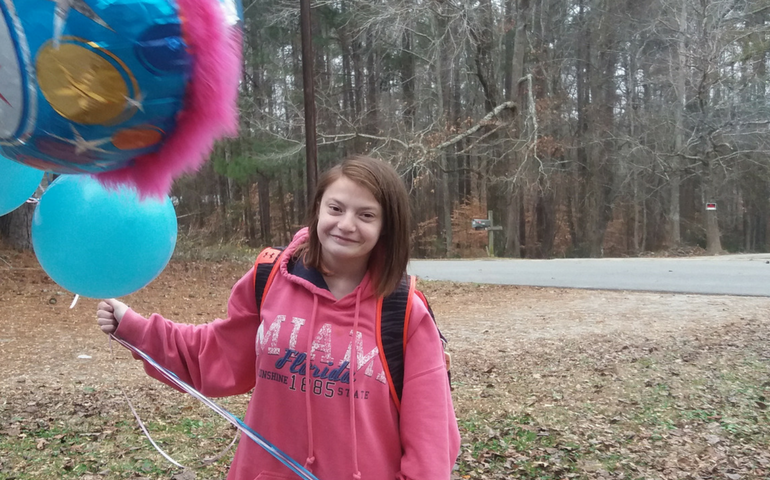Since birth, my 15 year old has been behind in physical, emotional and mental development. We couldn’t pinpoint a reason and just accepted it as part of who she is.
In 2017 she started getting severe headaches and ended up in the hospital for a week. She endured a 15-day migraine.
She struggles in school. She’s socially behind in her peers. She’s super tiny. She also has severe scoliosis and will undergo surgery to correct it this summer.
But she has the biggest heart of anyone you’ll ever meet. She tries so hard at whatever she’s doing. She’s always there with a hug for anyone who needs it.
She dreams of joining the Airforce and becoming a K9 Officer and then joining the police force after that.
As a mother, there is nothing more frustrating than seeing your child struggle, or hurt and not know how to help them. I’ve always known there was something amiss.
Finally, after seeing a neurologist for the headaches we had genetic testing done and discovered she has DiGeorge Syndrome or 22q11.2 deletion syndrome (22q).
Simply put, a small piece of her #22 chromosome never developed. This tiny missing portion of chromosome 22 can affect every system in the human body. 22q can be the cause of nearly 200 mild to serious health and developmental issues in children. It is often times not diagnosed or recognized as the cause of a child’s health and/or developmental issues for years. It is believed to be the second most common genetic disorder behind Down’s Syndrome, yet most have never heard of it!
There is no cure. All we can do is monitor all her systems, and treat issues as they show up. Like scoliosis, chronic migraine, severe learning disabilities, developmental delays and so on.
We got lucky. While she has a lot of issues, they are not nearly as severe as many face with 22Q or other diseases and disorders.
The tax reform legislation recently passed under President Trump affects families with children who have rare diseases, by dramatically reducing the incentive for research into such diseases. This means that because rare disorders affect less than 200,000 people, the amount of money to be made is limited.
Basically…Big Pharma won’t make any money off of our loved ones suffering from these issues.
Our children need this research.
Speak out and let your voice be heard.
Originally published at www.daringwomanmagazine.com


